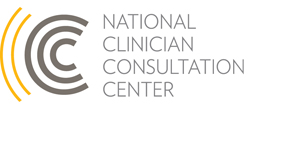Disparity and Care: National Black HIV/AIDS Awareness Day
Underserved populations can disproportionately encounter problems in receiving HIV testing and accessing HIV care, and National Black HIV/AIDS Awareness Day (Feb. 7, 2015) aims to bring light to this and other disparities in the HIV epidemic. Although African-Americans represent 12% of the US population, they make up an estimated 44% of people living with HIV (CDC, 2010). Healthcare system issues such as lack of access to culturally appropriate care and healthcare costs contribute to this disparity. Additionally, the expense of HIV medications, insurance coverage, and lack of access to consistent care can contribute to adherence problems and potentially prevent the use of the most effective courses of treatment.
The Clinician Consultation Center can support providers in reducing healthcare disparities by providing clinical advice and options about antiretrovirals, resistance, and adherence. U.S.-based clinicians, including those working in underserved communities, can receive expert guidance regarding their specific patients, cases, and treatment dilemmas. Our consultants are clinicians experienced in serving patients at San Francisco General Hospital, at community clinics, or at other venues where underserved-population care is common. The following cases provide examples of consultation supporting such care:
Case Summary 1
A physician calls the CCC regarding drug-drug interactions for a patient requiring Pneumocystis pneumonia prophylaxis (PCP) who has previously experienced a rash as a side-effect of sulfamethoxazole/trimethoprim (Septra). The caller asks if atovaquone is the preferred treatment or whether dapsone is acceptable. The caller also wants to know whether a patient’s ethnicity and gender might affect treatment decisions. He asks if African American vs. Asian/Mediterranean ancestry makes a difference in which regimen to prescribe.
CCC Consultant Advice
The consultant advises that caller that according to the Department of Health and Human Services Opportunistic Infections Guidelines, if trimethiporim/sulfamethoxazole should not usually be used because of some cross-sensitivity. Second-line treatments include: dapsone, dapsone + pyrimethamine/leucovorin, pentamidne (oral inhalation) or atovaquone. It is important to note that although atovaquone is equivalent in efficacy to dapsone or pentamidine(oral inhalation), it is significantly more expensive.
Race/ethnicity can become a significant factor if the patient has glucose-6-phosphate dehydrogenase deficiency. This deficiency is most severe in Asians and is moderate in African Americans; it is seen in 10% of the African-American male population in the United States. The consultant advises the caller to determine if moderate-to-severe glucose-6-phosphate dehydrogenase deficiency is present in the patient and to avoid dapsone if so. She advises that there is no evidence to suggest that dapsone has different effects on different genders.
Case Summary 2
A physician calls about a 20-year-old African-American man initially perinatally infected with HIV. The patient is negative for hepatitis B and C. He has an incomplete and sporadic ARV history, but was on multiple regimens in the past that included zidovudine, nevirapine (Viramune), and efavirenz (Sustiva). For the past two and a half years, he has been taking efavirenz/emtricitabine/tenofovir (Atripla). His most recent viral load was 533, while typically ranging from 500 to 2000 and he has never achieved an undetectable viral load. His CD4 count is currently high at 897. Due to persistent low-level viremia and a concern for resistance, his genotype was unable to be amplified. His physician would like to know whether switching him to a protease inhibitor (PI)-based regimen is reasonable.
CCC Consultant Advice
The consulting clinician agrees that the patient should optimally change to a new ARV regimen. He noted that perinatally-infected patients often have very complex treatment histories and often have evidence of resistance, and that a sporadic treatment history is of additional concern. Data from previous records of resistance test results, ARV regimens, viral loads, and CD4 counts should be synthesized and reviewed if possible. Adherence barriers should ideally be addressed; the consultant recommended that the patient articulate his treatment goal and preferences regarding possible side effects, dosing schedules, and pill burden.
The consultant noted that if previous medical history confirms the patient is PI-naïve AND has no to minimal NRTI mutations (≤ M184V), darunavir/ritonavir (800 mg/100mg) once daily together with emtricitabine/tenofovir (Truvada) one tablet once daily would be a regimen to consider. Many patients request the option of single-tablet regimens. Given the patient’s history of efavirenz/emtricitabine/tenofovir (Atripla) treatment and neviparine (Viramune) in the past, emtricitabine/ilpivirine/tenofovir) (Complera) was advised against since the patient failed to suppress on efavirenz /emtricitabine/ tenofovir. INSTI-based STRs could be considered, but the consultant noted that if the patient has resistance to the NRTI class, those options may not be potent enough to maintain durable viral suppression.
The consultant invited the caller to call back to discuss further ARV options if previous records revealed that the patient has developed NRTI resistance. The consultant advises the caller to recheck the patient’s viral load in two to four weeks to make sure that the patient is responding and the viral load is undetectable. The caller is advised to call back for further consult should the patient’s response be unsatisfactory.
For more information and resources on National Black HIV/AIDS Awareness Day, visit AIDS.gov’s roundup of stories, tools, and events. To encourage your patients and community to participate in related education and events, see the CDC’s information on getting involved.
 University of California, San Francisco |
University of California, San Francisco |
